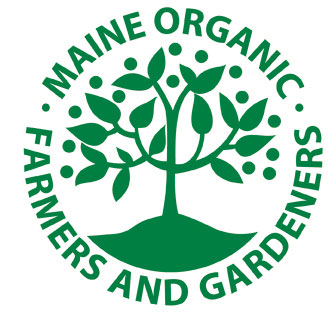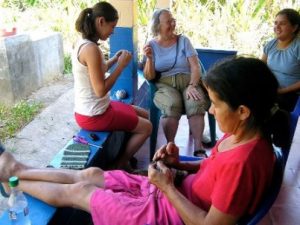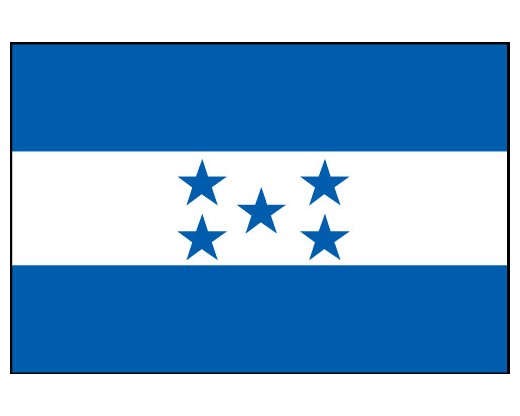Sister Cities
MOFGA Position Statement on Farmer Autonomy, Consumer Choice and Science-based Regulation
MOFGA, the Maine Organic Farmers and Garderners Associacion, is sistered with the Chalatenango Cripdes regional branch the CCR and CORDES.
Adopted by MOFGA’s Board of Directors – April 6, 2014
MOFGA Mission Statement: The purpose of the Association is to help farmers and gardeners: grow organic food, fiber and other crops; protect the environment; recycle natural resources; increase local food production; support rural communities; and illuminate for consumers the connection between healthful food and environmentally sound farming practices.
Summary: MOFGA supports collaboration within the agricultural community to identify and create a food system that is not only safe, but also allows farmers to meet the demand for local foods without excessive government regulation. This position statement is intended to clarify MOFGA’s policy on farmer and consumer market autonomy in relation to the public’s need for predictably safe food.
MOFGA’s primacy in this policy arena: Supporting local food production has been one of MOFGA’s priorities since MOFGA was established in 1971. MOFGA is committed to educational opportunities for farmers and the public in the areas of organic and sustainable farming systems. As farmers expand their markets and marketing, MOFGA continues to address food safety issues and incorporate food safety training in its educational programs. MOFGA’s training includes instruction about food contamination from biological, chemical, physical and transgenic and cisgenic sources. MOFGA actively engages with state, federal and non-governmental agencies and organizations about local food production and access.
Findings
MOFGA believes that for small farmers to prosper, we must provide more opportunities for intrastate sales of farm goods directly to consumers and develop strategies and infrastructure that increase markets for Maine farmers.
MOFGA’s primary activity is educating its members, its farmers and the general public on a range of issues including food safety.
Sensible, independent and reliable science-based information about food safety provides a rational basis to reduce regulatory barriers so that farmers can economically and easily develop and market their farm products while simultaneously assuring food safety.
The farmer always assumes primary responsibility for safe and healthful food. The shortest distribution distance is the best assurance that the farmer meets this obligation and provides easier food traceability.
Local food sales will provide incentives for entrepreneurs to develop regional food distribution centers, mobile food processing, and infrastructure to support local foods. Reducing barriers to and providing support for local food sales results in growth in farms and important economic advantages for local communities. There exists a strong movement in Maine and other states to reduce or eliminate regulation and other constraints on the sale of farm goods direct to the consumer. This movement has a positive impact on local food sales because it inspires a reexamination of laws and regulation governing farm food sales, especially production and sales by small farmers.
The National Organic Program requires farmer practices that, among other objectives, protect food from contamination from environmental pathogens and exposure to toxic chemicals.
Peer reviewed research has identified several categories of food that are essentially non-hazardous primarily because they do not support pathogenic microbial growth or toxin formation. Current (as of June 2013) FDA criteria for potentially hazardous foods and for foods not considered potentially hazardous are posted at: http://www.fda.gov/food/foodscienceresearch/safepracticesforfoodprocesses/ucm094143.htm along with a critique of the “potentially hazardous” category. Current criteria are based largely on water and protein content and pH. This is an example of the type of peer-reviewed research that can inform the development of food safety laws and regulations.
Policy objectives included in this document reflect the food regulations work that staff members are doing with state and federal government.
MOFGA has the professional staff and technical expertise to develop science-based white papers, when appropriate, to support positions on food safety advocated by MOFGA.
We believe the objectives in this document can work well in Maine where our government tradition is amenable to innovation.
Policy Objectives
A. Laws and regulations about local foods should strengthen local food systems, reduce regulatory barriers to farm sales and be uncomplicated and inexpensive enough to implement at the producer level.
B. Regulatory measures should match varying scales and diversity of operation and support a safe, stable, Maine-grown food supply produced with environmentally sound methods.
C. When federal rules permit, Maine state government should maintain sole jurisdiction over farmers’ markets, direct farm sales, retail sales, restaurants and other small-scale agricultural production and processing.
D. The Maine state government should honor federal regulatory exemptions that apply to small-scale producers. Maine state government should choose to establish/maintain its own inspection regime that is “at least equal to” federal programs for intrastate sales when federal rules permit this option.
E. MOFGA acknowledges the FDA definition for small-scale farms: (a) the farm must have food sales averaging less than $500,000 per year during the last three years; (b) the farm’s sales to qualified end users must exceed sales to others where the qualified end user is either a consumer of the food or a restaurant or retail food establishment that is located in the same state as the farm or not more than 275 miles distant, whichever comes first.
F. The definition of “direct to consumer sales” should include on-farm sales, farm stands, farmers’ markets, CSA’s, and retail consignment sales.
G. To reduce nutrition inequality, all consumers, including those who participate in WIC, SNAP and other federal programs, should have access to direct to consumer sales of farm goods. The state should not add requirements to these programs that create barriers for consumers. State policy should be as flexible as federal rules allow.
H. MOFGA’s positions on laws and regulations affecting small farmers will incorporate the different levels of interest: local, state and federal.
I. Public support should be available, where need exists, for private and non-profit sectors to develop mobile food processing and slaughter systems, regional food hubs and shared use kitchens so that small scale farmers can offer value-added farm products.
J. Public support should be available to private and non-profit sectors to maintain and expand consumer education on food safety, oversight for food safety, and potential risks associated with the manner in which food is processed before sale. Consumer education is a public good that helps consumers make informed choices about their food.
K. MOFGA will rely on independent peer-reviewed research when advancing information that should be supported by scientific data. Such research will help our farmers remain economically stable while helping our communities gain access to safe food. MOFGA will develop white papers on specific food safety issues as needed. We recognize there is little research being done in Maine on Maine-produced foods and therefore there may be gaps in research that reflect Maine farm size, production diversity, distribution systems and climate.



